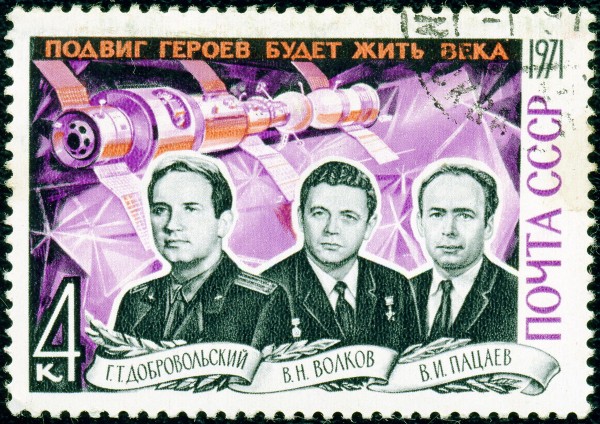“A vacuum is a hell of a lot better than some of the stuff that nature replaces it with.” -Tennessee Williams
The depiction of dying in space -- by exposure to its terrifying vacuum -- is incredibly varied, from freezing to swelling and bulging to simply exploding.
For this week's Ask Ethan, we take on the question of Kerrie Pinkney, who wants to know:
[W]ill you explode if exposed to the vacuum of space? I’ve gone down the “water boils in a vacuum then freezes” road, others have gone down the “tried it on a dog and it lived” approach. The movie Gravity shows buddy lifting his helmet and instantly freezing so… how does it work, Ethan?
So, who's got it right?
Come and find out what happens to the human body in the vacuum of space on this week's Ask Ethan!



Great column, great Rammstein picture.
Explosive decompression of the lungs could only occur if the lungs are directly exposed to a vacuum, which they are not inside the human body, except through the trachea. Would your lungs shoot out of your mouth, or would the airflow out of your lungs be low enough to prevent major damage?
In the 80's Robotech cartoon show, the hero Rick at one point performs a fairly short spacewalk, with nothing more than a fighter pilot helmet (which in the show covers the whole head) and a scarf to insulate it around his neck. If his helmet and the scarf were airtight, wouldn't he be able to stay conscious and active a bit longer than a few seconds?
Time to anoxia depends alot upon the state of your system at time zero. When I was young I could hold my breath three and a half minutes and made 50yards underwater. I don't think I could have lasted sixty seconds without pre hyperventillation which floods your tissues with dissolved Oxygen. So if you know ahead of time youre going into a vacuum and can time it*, you can extend your survival time -perhaps by a minute or two.
* If you do hyperventilate, you are in a toxic state of hyperoxygenation, you want to start using up that excess very rapidly (something like running a sprint up a steep hill -or something else that burns it up in say a minute or less).
Test conducted in the 1960's showed that dogs exposed to vacuum for 2 minutes frequently died, but separate tests conducted in the 1960's showed Chimpanzees can survive vacuum up to 3-1/2 minutes without lasting effect. The disparity is curious, but mostly I think tests in the 1960's show it wasn't a good time to be a dog or a chimpanzee.
That 2001 scene made me think of the other scene in that movie with a human vs. vacuum: when Bowman enters the airlock from the pod without his spacesuit helmet. (Open the Pod Bay doors, HAL). I remember it so well, because I was 14, living in NJ, and my father took me to see the movie in NYC when it opened. Going into the movie, there was a little pamphlet you were handed (sort of like a Playbill at the theater). What I noticed right away, was a separate insert sheet. It described how, via NASA and government tests, a person could survive, conscious, for up to 10-15 seconds in space without a helmet. It appears they were worried that that airlock-vacuum scene would be thought unrealistic and cause the movie to lose credibility. Funny how they worried what the viewing audience would think about that back then, and not about the 10 full minutes of star-gate psychedelia, the Edwardian bedroom, or the star-baby. I remember my father, when leaving the movie, saying, "What the HELL was that?" (First time he cursed in front of me).
https://www.youtube.com/watch?v=gpwvJzcfL1w
I still think "Franks death scene" is one the most chilling in cinema history.
Your description tallies with that of Douglas Adams in the Hitch-hikers Guide to Galaxy series, where the main characters have 30 seconds to be rescued after being ejected from the Vogon ship on which they stowed-away.
Oh my, the memories. Flashbacks to Frank's death was by far the most prominent space-related death I can remember.
Its amazing how humans have been able to turn imaginations into reality